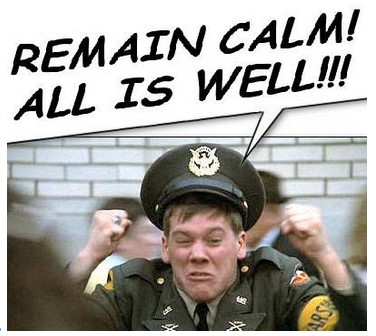Salma Zito has done it again:
Café Raymond is a favorite destination and, as usual, both floors, the balcony and the sidewalk tables at the diner are packed with patrons.
None of the people waiting for his signature stack of ricotta pancakes stuffed with blueberries, his home-cured smoked salmon and caper platter or his savory sunny-side-up egg and brisket hash have any idea the man behind the kitchen counter — Ray Mikesell — has placed his beloved restaurant up for sale. He’s calling it quits two decades after he returned home from Baltimore to raise his children and carve out a life in Pittsburgh.
Through tears he says he simply has had enough — not of his customers, not of creating new dishes or specialized drinks, but of all the uncertainty that has dogged nearly every small businessman in the country since the beginning of the pandemic.
“It started with COVID and just over time, the uncertainty, the stress of trying to stay open, the inability to hire people, the underlying tension in society, the inflationary cost of everything you need to purchase to create quality food, that is, if you can get it…” he says, his voice trailing. He stops and pauses to hold it together.
The food costs are crushing him, he said, but so is the cost of doing business, period. His utility bills have skyrocketed, as has the cost of fuel to pick up fresh meats and vegetables from local farms or to deliver food for catering jobs. The costs are crippling, he says, and they are creating a barrier to investing in a business he has loved for so long.
“It just breaks you down no matter how strong you are,” said Mr. Mikesell.
Here’s my take on this. Every time a politician says he cares about small businesses and their owners, he’s lying in his teeth.
This new crowd of socialists (including, alas, the Socialist Lite Republicans) absolutely loathe small, successful businesses, for the same reason they hate people owning cars: having your own car gives you freedom of movement, and your own business makes you part of a community, a community that binds you to itself because they now have the freedom to decide when, where and what they want to eat, and not have to go at specific times to a dreary commissariat like the hapless Winston Smith in Orwell’s 1984, and be fed the same slop and gruel as everyone else.
And the government absolutely hates that you have those freedoms.
If that’s not the case, please then explain to me why commuter and passenger rail systems are so popular with neo-socialist governments and why, when businesses like that of Ray Mikesell experience the same ghastly misfortunes (created, it must be said, by government), the government policy does absolutely nothing to help those businesses except by ladling out one-time, piddly subsistence-level “incentives” instead of addressing the main issues that cripple both the businesses and their customers: soaring inflation (created by the government printing too much money), high fuel prices (even though we are the most self-sufficient energy-producing nation on Earth), the double whammy of ever-higher food prices and shortages (in America!!!), and logistical / transport operations that are crippled by (all together now) government regulations.
I know that anecdotes are not data — except that they are, when the owner of a business like Café Raymond is not a statistical outlier, but just one of tens of thousands in a similar or worse predicament.
Explain to me why Ray Mikesell, and all those other business owners, should not just quit and go somewhere else. Explain also why the millions of ordinary people who are affected by the closing of small businesses and their own personal misfortunes should not be heating barrels of tar, oiling ropes, and loading up their semiautomatic sporting rifles.
But then we’re the bad guys. Yeah, right.



